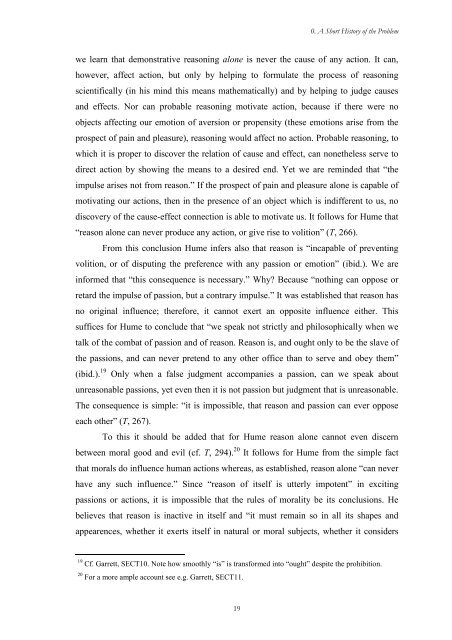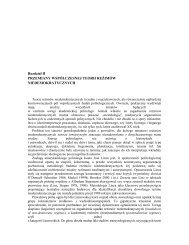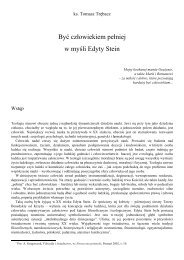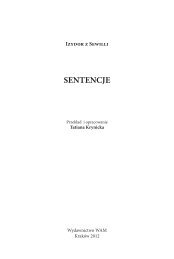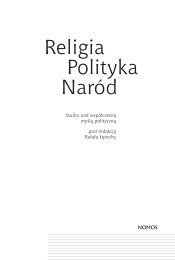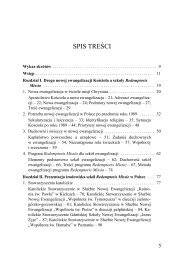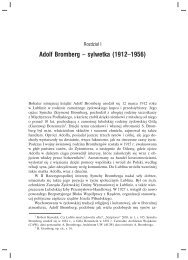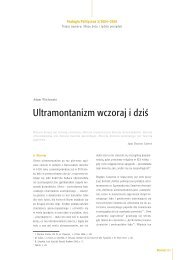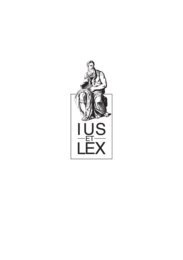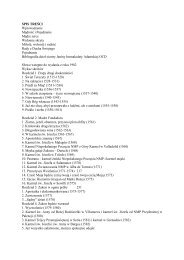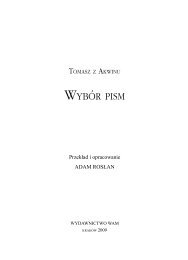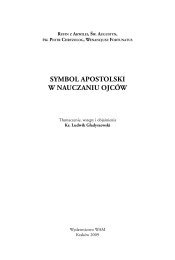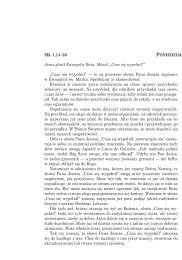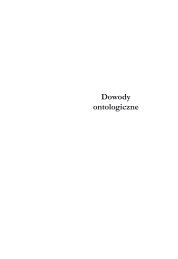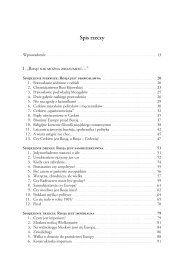Did St. Thomas Aquinas Justify the Transition from 'Is' to 'Ought'
Did St. Thomas Aquinas Justify the Transition from 'Is' to 'Ought'
Did St. Thomas Aquinas Justify the Transition from 'Is' to 'Ought'
You also want an ePaper? Increase the reach of your titles
YUMPU automatically turns print PDFs into web optimized ePapers that Google loves.
19<br />
0. A Short His<strong>to</strong>ry of <strong>the</strong> Problem<br />
we learn that demonstrative reasoning alone is never <strong>the</strong> cause of any action. It can,<br />
however, affect action, but only by helping <strong>to</strong> formulate <strong>the</strong> process of reasoning<br />
scientifically (in his mind this means ma<strong>the</strong>matically) and by helping <strong>to</strong> judge causes<br />
and effects. Nor can probable reasoning motivate action, because if <strong>the</strong>re were no<br />
objects affecting our emotion of aversion or propensity (<strong>the</strong>se emotions arise <strong>from</strong> <strong>the</strong><br />
prospect of pain and pleasure), reasoning would affect no action. Probable reasoning, <strong>to</strong><br />
which it is proper <strong>to</strong> discover <strong>the</strong> relation of cause and effect, can none<strong>the</strong>less serve <strong>to</strong><br />
direct action by showing <strong>the</strong> means <strong>to</strong> a desired end. Yet we are reminded that “<strong>the</strong><br />
impulse arises not <strong>from</strong> reason.” If <strong>the</strong> prospect of pain and pleasure alone is capable of<br />
motivating our actions, <strong>the</strong>n in <strong>the</strong> presence of an object which is indifferent <strong>to</strong> us, no<br />
discovery of <strong>the</strong> cause-effect connection is able <strong>to</strong> motivate us. It follows for Hume that<br />
“reason alone can never produce any action, or give rise <strong>to</strong> volition” (T, 266).<br />
From this conclusion Hume infers also that reason is “incapable of preventing<br />
volition, or of disputing <strong>the</strong> preference with any passion or emotion” (ibid.). We are<br />
informed that “this consequence is necessary.” Why? Because “nothing can oppose or<br />
retard <strong>the</strong> impulse of passion, but a contrary impulse.” It was established that reason has<br />
no original influence; <strong>the</strong>refore, it cannot exert an opposite influence ei<strong>the</strong>r. This<br />
suffices for Hume <strong>to</strong> conclude that “we speak not strictly and philosophically when we<br />
talk of <strong>the</strong> combat of passion and of reason. Reason is, and ought only <strong>to</strong> be <strong>the</strong> slave of<br />
<strong>the</strong> passions, and can never pretend <strong>to</strong> any o<strong>the</strong>r office than <strong>to</strong> serve and obey <strong>the</strong>m”<br />
(ibid.). 19 Only when a false judgment accompanies a passion, can we speak about<br />
unreasonable passions, yet even <strong>the</strong>n it is not passion but judgment that is unreasonable.<br />
The consequence is simple: “it is impossible, that reason and passion can ever oppose<br />
each o<strong>the</strong>r” (T, 267).<br />
To this it should be added that for Hume reason alone cannot even discern<br />
between moral good and evil (cf. T, 294). 20 It follows for Hume <strong>from</strong> <strong>the</strong> simple fact<br />
that morals do influence human actions whereas, as established, reason alone “can never<br />
have any such influence.” Since “reason of itself is utterly impotent” in exciting<br />
passions or actions, it is impossible that <strong>the</strong> rules of morality be its conclusions. He<br />
believes that reason is inactive in itself and “it must remain so in all its shapes and<br />
appearences, whe<strong>the</strong>r it exerts itself in natural or moral subjects, whe<strong>the</strong>r it considers<br />
19 Cf. Garrett, SECT10. Note how smoothly “is” is transformed in<strong>to</strong> “ought” despite <strong>the</strong> prohibition.<br />
20 For a more ample account see e.g. Garrett, SECT11.


